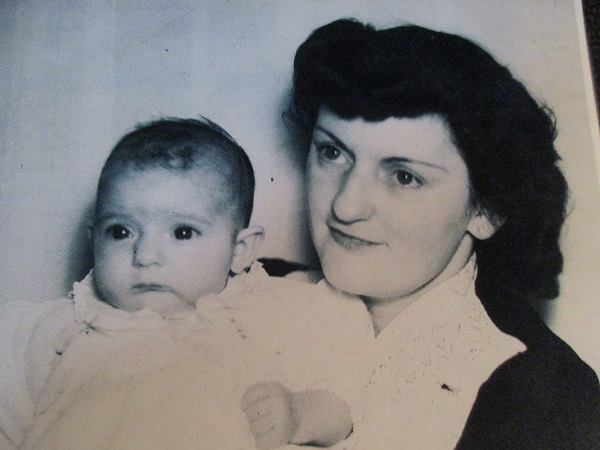
Married Women were also “Rosie-The-Riveters”
The Story of Iva Van Alstine
By Nancy Van Alstine Mullis
Even the married women did their part during World War II. Before the war my mother, “Iva Van Alstine” was a married housewife with five children. My Father (Harold) had a local job and mom stayed home and cared for us children. At the time Pearl Harbor was bombed on Dec 7, 1941, Iva was 26 years old.
In 1942, my father was working for Standard Desk in Herkimer, NY. He worked as a union carpenter. Iva also worked at Standard Desk as a “Spring Puller” making folding army cots for the war effort and earning $34.00 a week.
Early in 1942, with impending problems between the United States and Japan, the government decided it was necessary for security reasons for the US Army to quickly build a 1700 mile highway thru Canada to connect Alaska to the other contiguous United States. Harold was employed as a civilian tractor driver building the Alcan Highway (Alaska-Canada Highway). The highway was completed in the astonishing time of just nine months. It was cold, hard work and hundreds of miles away from his family.
The Remington Arms factory in Ilion, NY was hiring women to make guns in 1943. My mother got a job making Remington rifles for the Army. The pay was good and she wanted to support her country. Her job was to operate a drill press to bore the peep-site holes for the rifles. She had to be extremely careful doing the drill press work as our soldier’s lives depended on it.
In 1943, Harold came home from Alaska and worked for a time at Remington Arms boring gun barrels. At that time thousands of able-bodied men had gone to war and Harold wanted to defend his country. The Army was not drafting a father with 5 young children, so on October 22, 1943, he enlisted in the Army and was stationed at bases in the US on the east coast and later was sent to the fighting forces in Germany.
It wasn’t easy for a mother to work outside the home and raise five children without her husband. Iva’s sister (Avis Curley) heard about the jobs and the good wages and she also went to work for the war effort at Remington Arms making ammunition. She moved in with my mother and our family and since her husband was also away fighting in Europe, the sisters took turns caring for us children and working at the factory.
The day the war in Europe ended on May 8, 1945, my aunt and mother walked downtown to celebrate with the other townspeople. Soon the soldier’s came home and got their jobs back and the Rosie’s were laid off. Iva started working as a waitress and Harold was discharged in December 1945. He soon decided that he would rather be back in the Army. In February 1946, he re-enlisted and was stationed back to Europe with “The Allied Occupation of Germany.” In December 1946, my mother sailed with her six children to join him in Germany. We were finally a family living together again. We lived in five different homes in Germany during the next 2 ½ years before returning to our home in New York State.
My mother and all the Rosie’s of this generation were tough ladies and they stepped up to the plate and performed many of the men’s jobs during this stressful time to support our country. We can all be proud for all the sacrifices these ladies made for their country.
